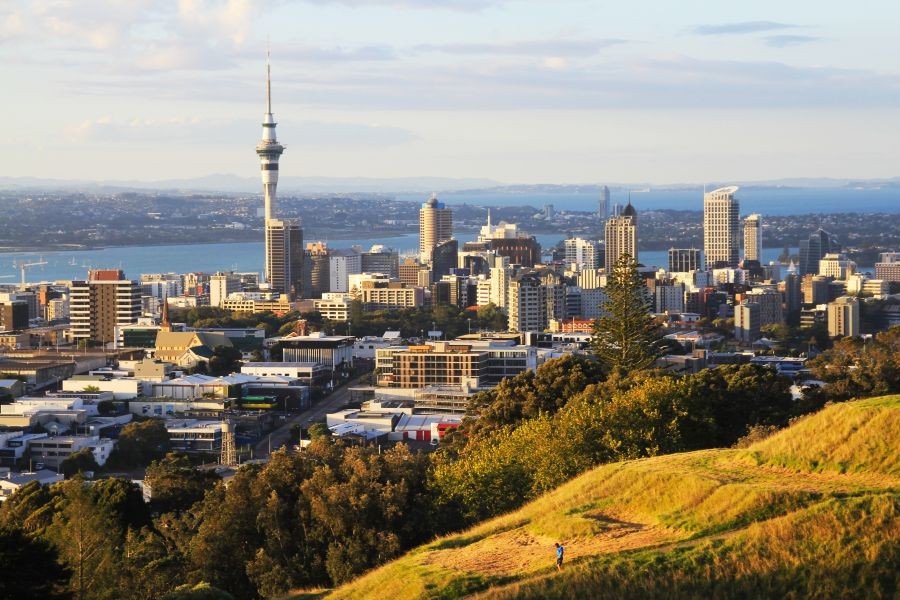Did you know that nearly 50% of New Zealand's carbon emissions can be attributed to transportation? As the nation grapples with its environmental impact, the need for sustainable transport options has never been more critical. In a country known for its pristine landscapes and commitment to environmental conservation, choosing the best sustainable transport options is not just an ethical decision—it’s a strategic one. Whether you're a business looking to reduce your carbon footprint or an individual seeking greener lifestyle choices, understanding the local context and trends is essential. This article delves into the nuances of sustainable transportation in New Zealand, offering insights, data-driven analysis, and actionable strategies to make informed decisions. What are your thoughts on the current state of sustainable transport in New Zealand? Share your insights below!
Expert Opinion & Thought Leadership
New Zealand's commitment to sustainability is evident through its policies and initiatives. The country's Zero Carbon Act aims to achieve net-zero emissions by 2050, making sustainable transport a pivotal component of this vision. According to a report by the Ministry of Business, Innovation, and Employment (MBIE), the transport sector contributes approximately 47% of the country's energy-related greenhouse gas emissions. This statistic underscores the urgent need for innovative transport solutions.
One promising trend is the rise of electric vehicles (EVs). According to the New Zealand Transport Agency (NZTA), EV registrations have seen a 30% annual increase, reflecting a growing public interest. However, challenges such as charging infrastructure and initial costs remain significant barriers. Industry experts suggest that government subsidies and public-private partnerships could accelerate EV adoption, offering a viable path to reducing emissions.
How It Works: A Deep Dive into Sustainable Transport Options
1. Electric Vehicles (EVs)
EVs are at the forefront of New Zealand's sustainable transport revolution. With the government aiming for 64,000 EVs on the road by 2025, they offer a cleaner, quieter alternative to traditional vehicles. While the cost of EVs is higher initially, their long-term savings on fuel and maintenance make them an attractive option. According to Stats NZ, operating an EV can save up to 70% on fuel costs annually.
2. Public Transportation
Investing in robust public transport systems can significantly reduce carbon footprints. Cities like Wellington and Auckland have been enhancing their bus and train networks to accommodate more passengers efficiently. The introduction of electric buses in Wellington is a testament to the city's commitment to sustainability. According to the Greater Wellington Regional Council, these buses have reduced carbon emissions by 17% in their first year of operation.
3. Cycling and Walking Initiatives
Urban planning that promotes cycling and walking can transform cities into sustainable havens. The New Zealand government has invested over NZD 390 million into cycling and walking infrastructure. The initiative not only reduces emissions but also promotes public health. The NZ Ministry of Transport reports a 15% increase in cycling in urban areas post these investments, showcasing a positive shift in commuter behavior.
Real-World Case Study: Wellington's Electric Bus Network
Problem: Wellington's public transport system faced challenges with aging diesel buses, contributing to high emissions and noise pollution.
Action: The Greater Wellington Regional Council launched an ambitious project to replace diesel buses with electric ones. Collaborating with local businesses and government bodies, they rolled out a fleet of electric buses across the city.
Result: Within the first year, Wellington saw a 17% reduction in carbon emissions from its public transport sector. Passenger satisfaction increased due to quieter, smoother rides, and the initiative set a precedent for other cities to follow.
Takeaway: Wellington's success illustrates the potential of electric buses in reducing urban emissions. Other New Zealand cities can replicate this model to achieve similar environmental benefits.
Common Myths & Mistakes
- Myth: "Electric vehicles are too expensive for the average Kiwi." Reality: While the upfront cost is higher, government subsidies and lower running costs make EVs affordable in the long run.
- Myth: "Public transport is inconvenient." Reality: With continuous improvements and expansions, New Zealand's public transport is becoming more efficient and user-friendly.
Future Trends & Predictions
By 2030, it's predicted that over 50% of New Zealand's new car sales will be electric, driven by technological advancements and government incentives. Autonomous vehicles could further revolutionize the transport sector, offering shared mobility solutions that reduce individual car ownership and emissions. According to the Reserve Bank of New Zealand, these trends will contribute significantly to the nation's sustainable growth, aligning with the zero-carbon goals.
Final Takeaways & Call to Action
- Embrace electric vehicles for long-term savings and reduced emissions.
- Utilize public transport to contribute to a cleaner city environment.
- Participate in cycling and walking initiatives to support urban sustainability.
Are you ready to make a change? Whether you're a business leader or a concerned citizen, adopting sustainable transport options can significantly impact New Zealand's environmental goals. Share this article with your network to inspire others, and let us know your thoughts in the comments!
People Also Ask (FAQ)
How does sustainable transport impact businesses in New Zealand?
Sustainable transport reduces operational costs and enhances brand reputation, leading to increased customer loyalty and engagement.
What are the biggest misconceptions about sustainable transport?
One common myth is that sustainable transport is too costly, but research shows long-term savings and environmental benefits outweigh initial investments.
Related Search Queries
- Sustainable transport options in New Zealand
- Electric vehicles in NZ
- Public transport improvements in Wellington
- Cycling infrastructure in New Zealand
- Environmental impact of transport in New Zealand






























808likkah
2 months ago